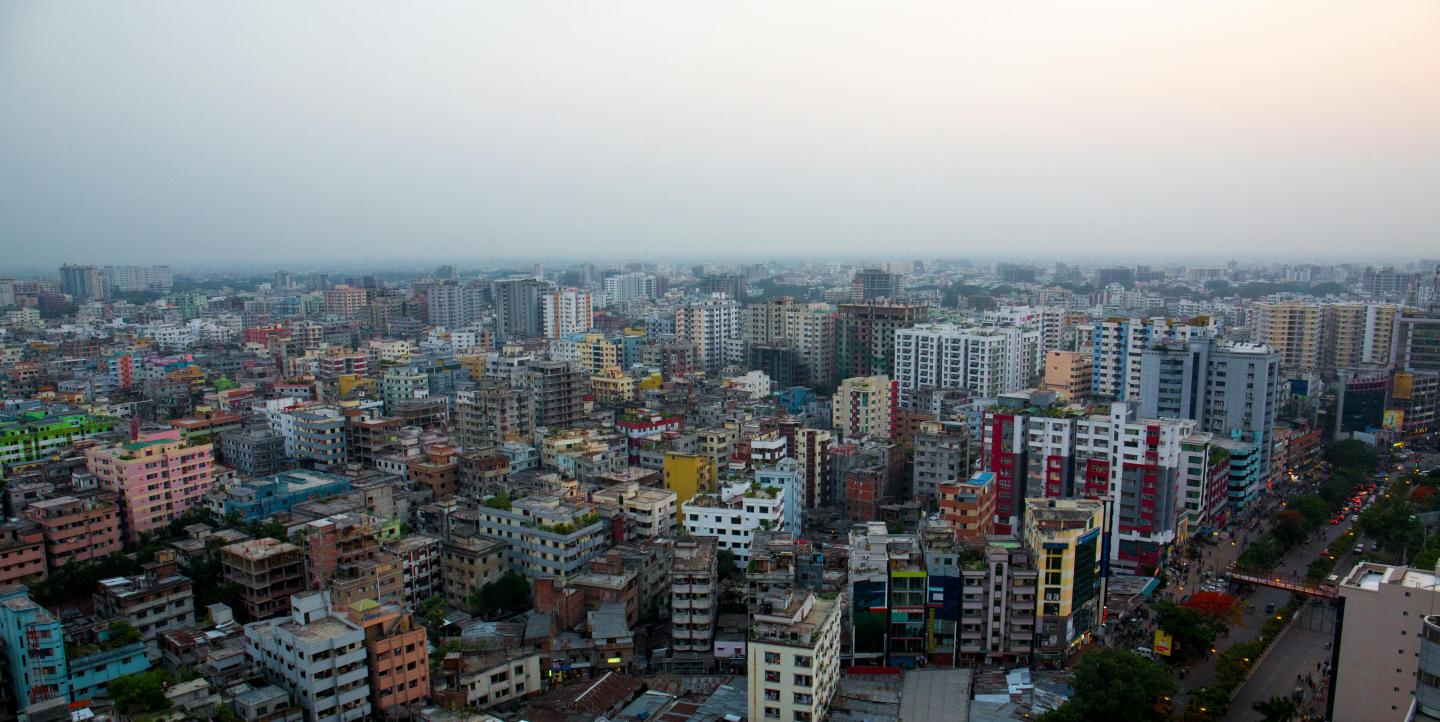On the evening of February 5, a tense atmosphere gripped the historic neighborhood of Dhanmondi 32 in Dhaka, Bangladesh, as protesters gathered outside the former residence of Sheikh Mujibur Rahman, the country’s founding president. The protesters were fueled by anger over a speech made by former Prime Minister Sheikh Hasina, Rahman’s daughter, six months after her removal from power last August.
Mohammad Omar Farok, a journalist at a privately owned television channel in Dhaka, was on site to document the developments in a live broadcast at midnight. As he described the scene, he referred to Rahman as “Bangabandhu” (Friend of Bengal), a title bestowed upon him by the people in 1969.
This single word ignited fury among the rioters, many of whom refuse to recognize Rahman as the “Friend of Bengal” or the “Father of the Nation” not only because they view the Awami League regime his daughter led as having been authoritarian and a betrayal of the founding ideals, but also because they contend that Rahman's own tenure was marked by controversy. Hundreds swarmed around Farok, demanding he apologize for using the title, accusing him of bias, and labeling him a “fascist collaborator.” Some attempted to physically assault him, while others hurled water bottles and insults. Fellow journalists who tried to intervene were attacked.
Farok's case is not an isolated one. “While we no longer receive calls from intelligence agencies to stop reporting, journalists and media houses are now imposing self-censorship out of fear,” he said. “The threat of being labeled a ‘fascist collaborator’ or facing mob attacks has created an atmosphere of terror. Self-censorship, mob intimidation, and these toxic labels are crippling journalism.”
Increase in attacks
The human rights organization, Ain o Salish Kendra, documented 531 incidents of harassment against journalists in 2024. Of these, 235 occurred between January and July, during Hasina’s tenure, while the remaining incidents took place after the new interim government, led by Muhammad Yunus, assumed power following the July-August uprising. Nearly 1,400 people were killed during the uprising, with a U.N. report finding Hasina’s government and security intelligence forces responsible for the crackdown.
According to Reporters Without Borders (RSF), after the regime change, nearly 140 journalists viewed as aligned with Hasina’s government faced “extremely grave but baseless accusations of killing protesters.” Twenty-five were charged with “crimes against humanity,” forcing many into hiding to avoid arrest and imprisonment.
“These cases are dubious, often claiming journalists attacked protesters without specifying victims. In some instances, even plaintiffs were unaware of the alleged attacks, yet journalists’ names were still registered,” said Saleem Samad, a media rights defender and RSF correspondent. “Although law enforcement and Awami League-linked individuals were behind most attacks during the uprising, cases were instead filed against journalists, some of whom were not even present at the scene. Since Hasina’s fall, many have been falsely implicated in protest-related shootings, often facing extortion to have their names removed.”
In the first two months of 2025, Ain o Salish Kendra documented 62 incidents of harassment against journalists. Among them, five journalists had trumped up charges brought against them, 25 were assaulted on the job, and five cases were filed against journalists for their published reporting.
In one case, Mahmud Tanjid, a Daily Sangbad correspondent at Jagannath University, Dhaka, published a story after the regime change, about how the Bangladesh Jamaat-e-Islami political party’s student wing had allegedly taken control of university-based social and cultural organizations. An office bearer at one of the organizations has charged the 25-year-old with defamation.
“I had proof they controlled these organizations but stayed hidden during Sheikh Hasina’s regime,” Tanjid said. “After the change, their committee list revealed their leaders also led university organizations. This case is meant to harass and isolate me, disrupting my studies for reporting the truth.”
Media rights organizations have condemned the trend, calling for greater protection for journalists and an end to the misuse of legal systems to silence dissent.
Power reshuffle in Bangladesh
Since the fall of Hasina’s government, Bangladesh’s media landscape has undergone a sweeping transformation. Beyond the lawfare targeting them, the Bangladesh Financial Intelligence Unit has ordered banks to freeze the accounts of dozens of journalists, and the Ministry of Information has revoked the press accreditation of 167 journalists.
Meanwhile, the Daily Star and Prothom Alo, the two most circulated newspapers in the country, were targeted in coordinated assaults. And in Rajshahi, nearly 200 demonstrators stormed the local Prothom Alo office, tearing down its signboard and branding the publication as an “agent of India.”
The ownership structure of several prominent outlets also shifted, as journalists aligned with the Bangladesh Nationalist Party and Jamaat-e-Islami political parties have taken over key roles once held by those affiliated with the Awami League. Across newspapers, TV channels, and digital news platforms, 29 leadership positions have been replaced.
In the aftermath of the July-August uprising, a group of student protesters also began blacklisting journalists, saying they believe the individuals "engaged in activities under the guise of journalism that are against national interests and the state." Many of these journalists were forced to flee, go into hiding, or cease their professional activities, while others faced legal action and arrests.
Beh Lih Yi, Asia program coordinator at the Committee to Protect Journalists, underscored the alarming state of press freedom in Bangladesh, six months after a historic political transition.
“We are disturbed by the apparently baseless detentions and criminal cases against journalists, and incidents of media groups' offices being targeted and vandalized. These assaults on press freedom must end. They create a chilling effect on the media,” she said. “In this new political era, there must not be a repeat of the previous regime's playbook, of using the law to target critics and journalists. At the same time, the media must uphold ethical journalism and be allowed to report without fear of reprisal.”


